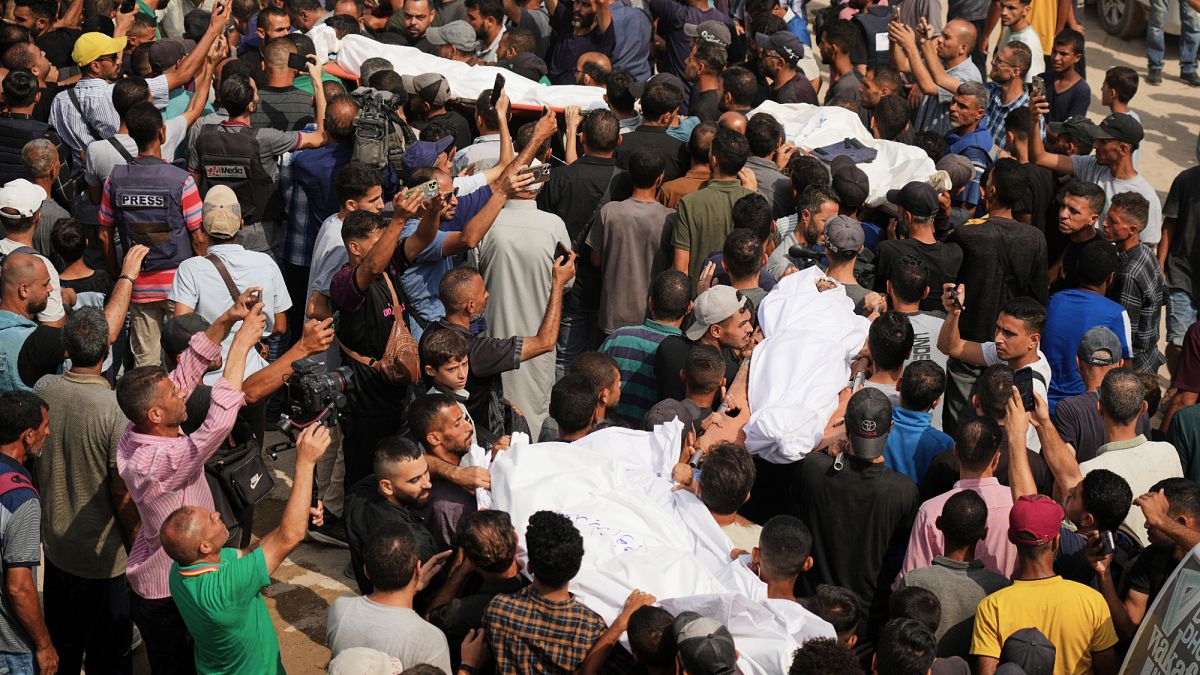The targeted killing of Palestinian journalist Anas Al-Sharif,** claimed by the Israeli Defence Forces (IDF), has provoked international outrage. Al-Sharif, one of the most prominent voices in Gaza’s media, worked for the Qatari network Al Jazeera, which has described his death as a deliberate killing and an assault on press freedom.
International organisations, including the United Nations, have condemned the incident, calling it a serious violation of human rights. On the political front, several European leaders criticised Israel’s stated intention to occupy Gaza, while Israeli Prime Minister Benjamin Netanyahu reaffirmed his commitment to continue the military operation.
Protests have erupted not only abroad but also in Israel itself. Thousands took to the streets of Tel Aviv to oppose the government’s intention to occupy Gaza. Italian Defence Minister Guido Crosetto was among the few who spoke out in recent days.
“What is happening in Gaza is unacceptable,” Crosetto told La Stampa. “It is one thing to liberate Gaza from Hamas, and another to drive out Palestinians. The first can be called liberation; expelling an entire people from their land is something else entirely.”
French President Emmanuel Macron stressed the need for an international mission under a UN mandate “to avoid a predicted disaster and permanent war” following Israel’s announcement that it will proceed with its occupation.
German Chancellor Friedrich Merz stated: “We support Israel, but we oppose its policy on Gaza.” In response to the occupation announcement, Germany – one of Israel’s main arms suppliers – decided to partially suspend deliveries. Netanyahu called Merz “a good friend” but said he had “given in to pressure.”
More than 180 journalists have lost their lives in the Gaza Strip since the beginning of the Israeli army offensive. They are all Palestinians, due to Israel’s ban on allowing international press access.
On Sunday night, Al Jazeera reported that seven more journalists were killed in an Israeli airstrike on Gaza City, five of whom were members of the network’s staff. Among them was 29-year-old Anas Al-Sharif, one of the most recognisable Palestinian reporters in the territory.
The network called it a targeted strike intended to silence “the last remaining voices reporting from Gaza.” Hours before his death, Al-Sharif had posted on X about the intensifying Israeli bombardment.
The IDF accused him of leading a Hamas cell “responsible for rocket attacks against Israeli civilians and IDF troops” but offered no supporting evidence.
Sara Qudah, CPJ’s Middle East director, condemned Israel’s unsubstantiated claims: “Israel has a long-standing practice of accusing journalists of terrorism without providing credible proof.” The CPJ had already warned in July that Al-Sharif was being targeted in an intimidation campaign.
Reporters Without Borders (RSF) also condemned the killing, calling for urgent international intervention to stop the violence. Irene Khan, the UN special rapporteur on freedom of opinion and expression, said she was “deeply alarmed” by the accusations against Al-Sharif, “the last surviving Al Jazeera journalist in Gaza.”
The UN Human Rights Office likewise denounced the killing, describing it as a “grave violation of human rights.”
UNICEF estimates that 12,000 children in Gaza are severely malnourished – “a staggering increase” and “the highest number ever recorded,” according to its Middle East and North Africa office. The latest IPC report, covering late July, found that more than 500,000 people are experiencing famine, with 39% of Gaza’s population – roughly one in three – going days without food.
Against this backdrop, Italy is preparing a humanitarian mission. According to government sources, 34 children from Gaza in urgent need of medical care will arrive in Italy on 13 August, accompanied by 91 family members. The mission will involve the Ministry of Defence, the Ministry of Foreign Affairs and International Cooperation, and the Civil Protection Department.
Sunday’s emergency meeting of the UN Security Council, convened to discuss Israel’s occupation plan, exposed deep divisions. European members – including the UK, Denmark, France, Greece, and Slovenia – urged Israel to back down.
“This is not the path to resolution,” France and Britain declared. “It will bring more bloodshed and do nothing to end the conflict.”
The United States maintained its support, saying it “defends Israel’s right to protect itself from Hamas terrorism.”
At a Sunday press conference, Netanyahu insisted the occupation plan was “the best way to end the war.” He said Israel did not intend to occupy Gaza City permanently but aimed to disarm Hamas, free the hostages, and implement a five-phase strategy. He also revealed that a transitional authority to administer Gaza had already been identified.
Read the full article here


